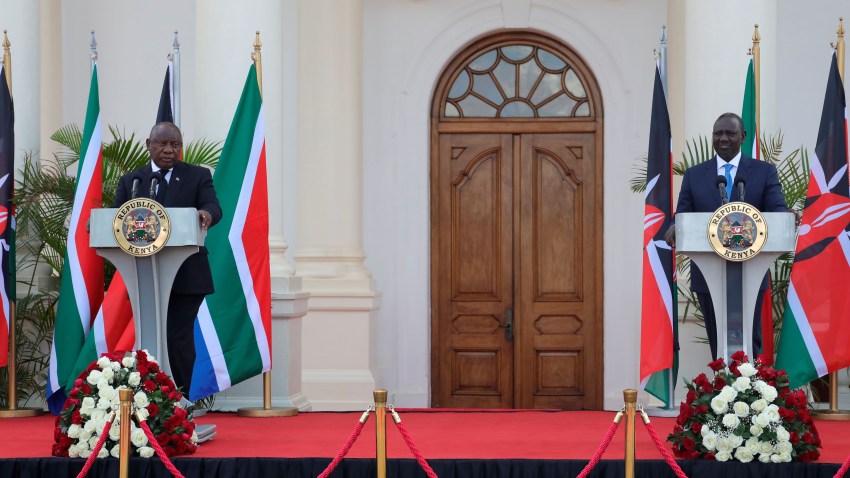Earlier this week, South Africa issued immunity to all foreign leaders attending the BRICS summit in August, in what South African officials insisted was a routine part of Pretoria’s preparation for international gatherings the country hosts. But many observers saw it as an attempt to pave the way for Russian President Vladimir Putin to attend the summit without exposing himself to legal jeopardy.
In March, the International Criminal Court issued an arrest warrant for Putin on charges of war crimes in Ukraine. South Africa had already invited Putin to attend the BRICS summit before the warrant was issued. But it is now facing diplomatic pressure to detain the Russian president and hand him over to the court if he steps foot in the country, as many international law experts argue it is required to do as a signatory to the ICC.
The development comes amid a diplomatic standoff with the U.S. over allegations of an arms shipment to Russia. The two somewhat overlapping controversies coincide with South Africa’s reemergence as a prominent voice for Africa on major global issues. Broadly speaking, Pretoria has taken a leading role in articulating continental as well as its own domestic positions in international forums in recent years, dating back to the onset of the coronavirus pandemic. South Africa has also emerged as the de facto standard-bearer of African nonalignment in the war in Ukraine, ever since nearly half of the African members of the United Nations did not formally support a U.S.-led U.N. General Assembly resolution condemning the Russian invasion in March 2022.

